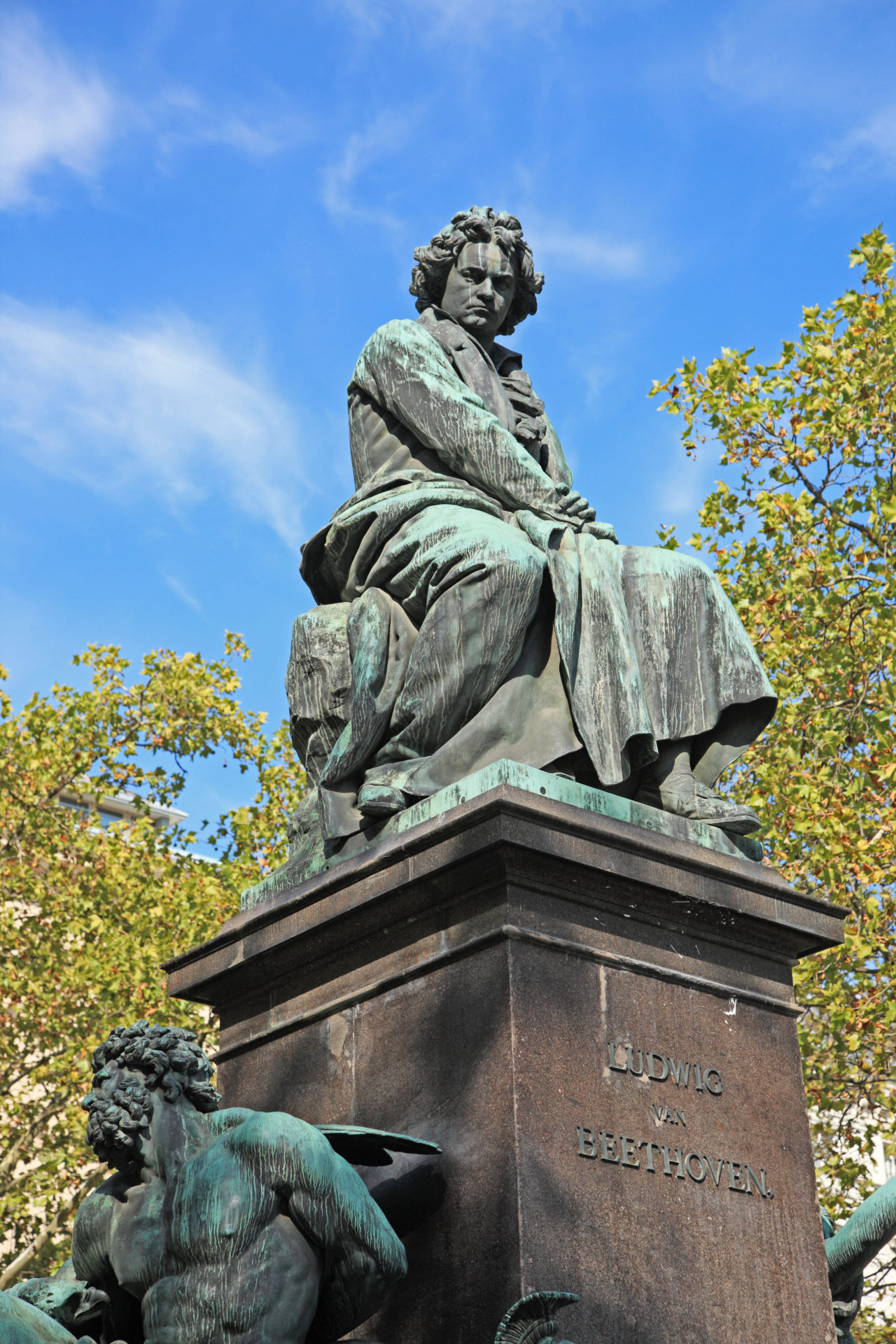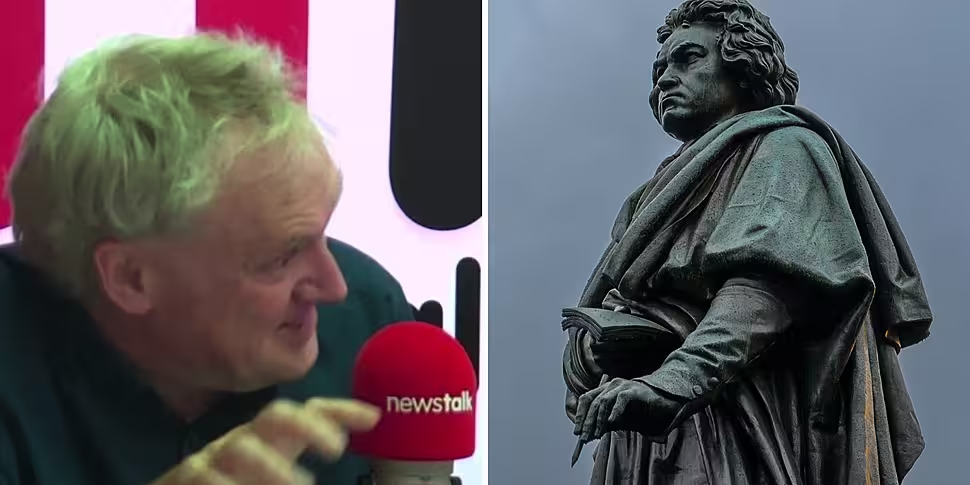Scientists have found new information about Beethoven’s cause of death by carrying out “a sort of molecular post-mortem” nearly 200 years after his passing.
Trinity Professor Luke O’Neill told The Pat Kenny Show that a new study examined the legendary composers DNA and found that he faced a “perfect storm” of liver issues towards the end of his life.
Beethoven died 196 years ago on March 26th, 1827 at the age of 56.
Professor O’Neill said the new study “highlights the power of DNA and what DNA can tell us”.
He said the scientists were able to sequence two billion letters in his genome through a lock of his hair – noting that humans have three billion in total.
The study was only possible due to improvements in DNA extraction and sequencing technology in the past two decades.
“They knew at the time he had jaundice and he had swollen limbs and that is a sign of liver problems,” said Professor O’Neill.
“They also knew he was a heavy drinker; he was quite famous for being a bit of a drinker.
“They are calling it a perfect storm to damage someone’s liver.
“So, heavy drinking and then two genes. One called PNPLA3 - that gives you a risk of liver disease - and then another one called HFE.
“He had variants of those two genes that predict liver problems and if you combine it with the alcohol then you are in trouble.
“Then the third bit - the killer piece of evidence - he had hepatitis B. They found fragments of a virus in his DNA incredibly and Hepatitis B causing liver disease you see.”
 Beethoven statue at the Austria, Historic Centre Vienna. Image: mauritius images GmbH / Alamy
Beethoven statue at the Austria, Historic Centre Vienna. Image: mauritius images GmbH / AlamyProfessor O’Neill said the virus was likely dormant in Beethoven’s system before erupting as his health failed later in life.
“Maybe the alcohol woke up the virus,” he said.
“He might have caught that virus when he was a child you see and it went dormant and they reckon then, maybe when he was 55 or something, that virus now re-emerges.”
The researchers began the study with eight separate locks of hair that were believed to have come from Beethoven.
When they sequenced them, five were a match, meaning it was a “good bet then that they were actually Beethoven”.
Professor O’Neill said they were hopeful of finding clues as to the cause of the composer’s deafness; however, they have yet to find a definitive answer.
You can listen back here:









